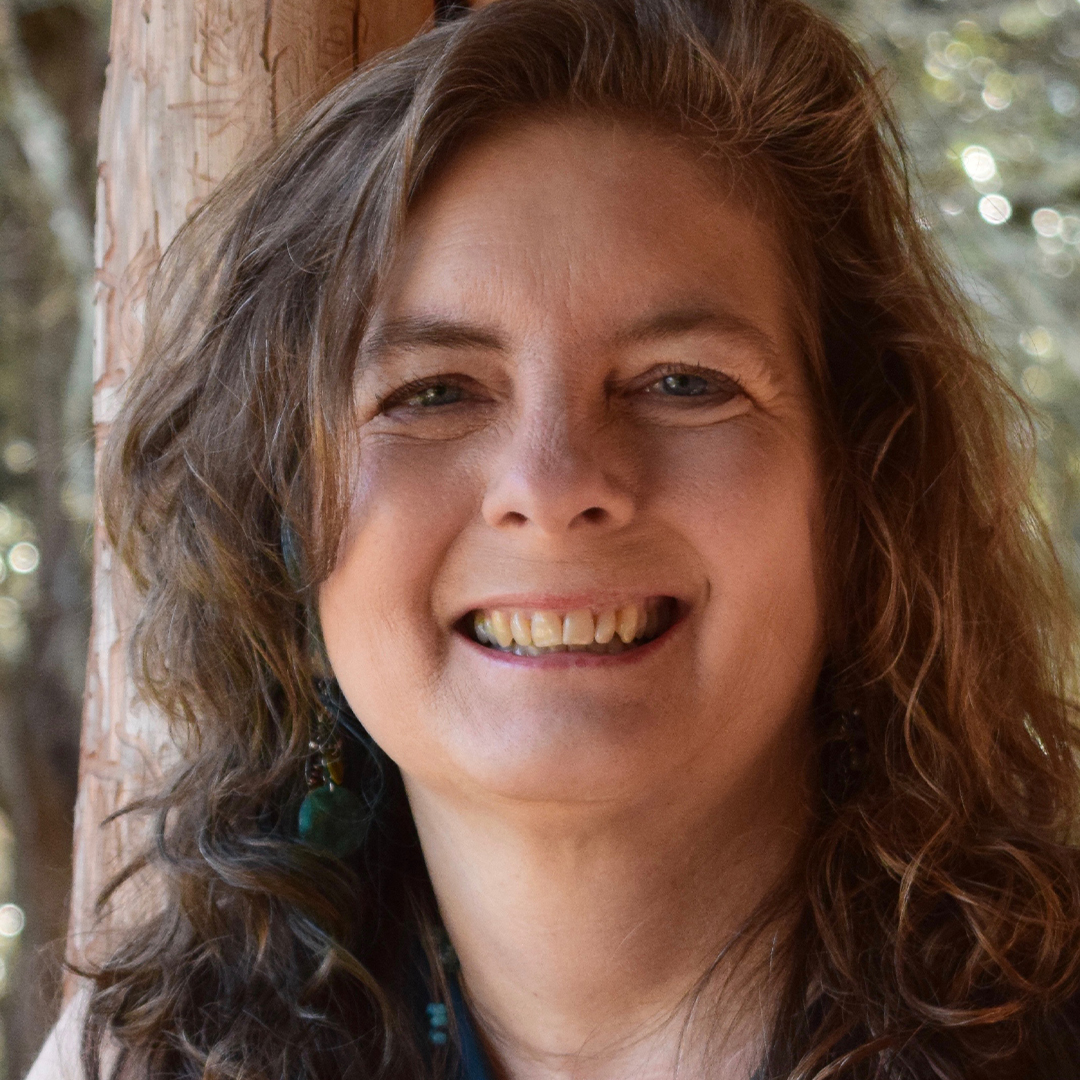
Jill Richardson
Jill Richardson, D.Min., is the pastor of Real Hope Community Church near Chicago. She is the author of six books and a national speaker. She has just completed her doctorate in church leadership in a changing context. Her tagline is “Reframed: Picturing Faith With the Next Generation.” Visit jillmrichardson.com for more of her work.
by Jill Richardson
Two slender hands reached out, pulling my daughter toward a booth filled with combs and clips and assorted cheap but pretty hair goods. The shop owner began to caress Beth’s hair, combing it and pinning tiny butterfly clips in it so they fluttered around her head. By this time, we weren’t startled. That a stranger would be entranced by our 6-year-old’s appearance had become normal.
We got used to this during our two weeks in China. Strangers routinely oohed and aahed at our youngest child, put her in their family photos, and even wrote a news story featuring her. They had never seen a little girl with long, light brown hair and hazel eyes. She was not of their world.
Christians have heard this phrase “be in the world but not of it” forever — though it’s not ever explicitly stated in Scripture. We’ve created a multitude of rules surrounding it, and, as a result, we’ve created more confusion than clarity. What do those two small prepositions — in and of — mean?
What is it like to be such an oddity in this world that we feel like a little girl in a foreign country, surrounded by strangers who speak a strange language? Yet our little girl, in her outsider status, went into classrooms, ate breakfast at street stalls, rode public transit, and made friends, fully appreciating the world around her as her own. So how do we learn likewise to participate in our world, fully and freely, yet knowing home awaits?
Strangers in a Strange Land
To solve this puzzle, let’s look at God’s picture for His people from the beginning. When God called Abraham, He called him to be a wanderer. As a stranger traversing strange lands, he had one job — bless other people (Genesis 12:2). God set up His people right away to understand that they are foreigners in a place that does not belong to them. The people of God are referred to in Hebrew as ger — foreigners, strangers, exiles. Peter uses a similar phrase later— “temporary residents and foreigners” (1 Peter 2:11 NLT) to describe Jesus’ followers, linking us to that same heritage.
The lesson continues. Moses chose to name his son Gershom as part of that link. He wanted a constant reminder that the people of God walk as strangers in this world and always will. Their eternal priorities are different. Their identity as people of the one true God sets them apart.
The Israelites’ spiritual father was a nomad, their ultimate identity an exodus people, strangers in a strange land. From the beginning, God has ensured His people could not forget their identity as aliens in the world. This is all very, very intentional.
Exiled
Sadly, they do forget, once settled in the Promised Land. As they disobey God’s command by, not coincidentally, refusing to treat the foreigners in their own land with compassion and care, the people once again become exiles and slaves.
This is the situation when Jeremiah offers the best picture of being “in the world but not of it” that we find in Scripture.
“This is what the Lord of Heaven’s Armies, the God of Israel, says to all the captives he has exiled to Babylon from Jerusalem: ‘Build homes, and plan to stay. Plant gardens, and eat the food they produce. Marry and have children. Then find spouses for them so that you may have many grandchildren. Multiply! Do not dwindle away! And work for the peace and prosperity of the city where I sent you into exile. Pray to the Lord for it, for its welfare will determine your welfare’” (Jeremiah 29:4–7 NLT).
God’s people are to live in this world that isn’t theirs, making the best life they can there, and to bless their neighbors by creating pockets of peace and well-being wherever they are. They are told to work for shalom — wholeness — in that place. This is the context we must carry into the New Testament when we read the words of Jesus and the apostles.
Not of the World
The New Testament stresses the idea of not belonging to the world multiple times. Jesus said He did not belong to the world and that His followers would not either (John 15:19, 17:14,16). Paul admonishes not to “copy the behavior and customs of this world” (Romans 12:2 NLT). John explains that loving the world’s pride, possessions and pleasures is inconsistent with being God’s people (1 John 2:15).
Does this mean we don’t become part of our surroundings, that we hold ourselves off, separate and secure, as the popular Benedict option would have us accept? (Visit fmchr.ch/boption and fmchr.ch/benedict for a better understanding of the Benedict option.) Does “not loving the things of this world” mean we create a list of things we eschew for the glory of God? Are we to appear different in behavior, dress or speech, or is there something deeper going on in Jesus’ description of His people as not of this world?
There is, and it all centers on this concept of being strangers who work for shalom.
When we examine Jesus’ actions, it’s clear He didn’t set Himself apart and away from His humanity. He joined very closely into the lives of humans, weeping at their grief, healing their pain, and celebrating with their joys. He went to notorious peoples’ homes (Luke 19), spoke in depth with women who could harm His reputation (John 4), and hired a revolutionary as His disciple. Jesus’ last concern was how He would look to others. He doesn’t seem to care if His associations make Him look dubious. His longest “checklist” of correct behaviors seems to include “love God and neighbor.” Yet He says He is not of this world. What could that mean then?
In saying He and His followers were not of this world, Jesus is making a claim of identity, not location or association. This is an important distinction. He is refocusing us on the notion of being strangers who find our identity in belonging to the one true God, not in our location or associations.
We gain our purpose and sense of security from another place entirely. We know who we are and what our priorities are — not from the messages this world bombards us with, but from our new citizenship in God’s kingdom. We are those people of faith who look toward another place called home (Hebrews 11), even while we live well in this one. In our souls, we long and fight for the Garden, while entropy fights to keep us away.
The World Will Hate You
This works out in several ways. Jesus promised that, for one, the world would hate this restoration-centric living. Some followers have taken this as a badge of honor, making others’ dislike into proof that they are doing things “right” as believers. They proclaim their more godly behavior in social media, on church signs, and in person — and the world does hate that.
Yet this “proving ourselves holy” mentality doesn’t line up with what Jesus says sets us apart. Being not of this world isn’t a particular adherence to doctrine or behavior — it’s a life marked by a new identity and allegiance.
Believers with an identity in the kingdom don’t fear (or desire) others’ judgments, because their worth comes from their relationship with God. This kind of internal confidence makes others uncomfortable, since most people are still searching for worth and identity, and often finding disappointment. A confident and correct assessment of oneself, in the midst of a culture where one false move could get you “canceled,” smells of belonging to someplace else entirely.
In our refusal to allow earthly priorities to pull us back toward the pursuit of those three P’s in 1 John — pride, possessions and pleasures — we could bring on the world’s confusion and scorn. Allegiance to priorities so different than those many use to bring them security sticks out like a little American girl in rural China.
People naturally dislike what makes them uncomfortable, and discovering one whose sense of identity is deeply secure in a deeply insecure world is very discomforting. That we will not join in the pursuit of anything before love of God and neighbor is odd enough to make others give you side-eye. This inner peace in a disquiet world, though, is harder to hold onto as a distinctive than rules and checklists that tell us we’re “doing OK” at being “not of this world.”
What all this means is that Jesus’ statements about not being of the world have little to do with the outward behavior differences we often associate with the term. He doesn’t give a minute’s thought to appearances. What they do mean is that we have such an inward certainty of our citizenship, identity, and purpose that we are outwardly people of shalom, and those kind of people do not fit in in this world. People of shalom exhibit peacefulness, assurance and wholeness that aren’t for sale outside of God’s kingdom. Thus, neither do they give thought to outward appearances or displays. They simply live in such wholeness that people notice.
What does this look like, in real terms? For instance,
- People not of this world possess a humility that says, “I might be wrong. Tell me more. I’m listening,” because they don’t get their identity from being affirmed or being right. They get it from being loved by God.
- People not of this world consider the welfare of others first, because their security is not in any safety offered by human institutions.
- People not of this world don’t fear looking bad to others, because they know their loyalty is to a kingdom where appearances don’t matter but heart does.
- People not of this world live in as much peace with neighbors, family, and self as they can, avoiding giving or taking offense, because they know their calling is to shalom.
- People not of this world exude hope, without platitudes. They don’t give in to doomsday thinking, because they know the King of an eternal country.
In the World
Jesus also says He is leaving us in the world. He is leaving us here so that we can spread that wholeness, that shalom. He keeps His disciples here so that shalom can permeate like yeast around us. We are in the world for precisely the reason God tells Abraham he is in it and the reason Jeremiah later explains — to bless it. To work for its welfare. To love it as Jesus loved it, fully enjoying its joys and fully mourning its struggles. To treat our neighbors as we would like to be treated. To remember that we are strangers who do not belong, and, therefore, to hold lightly those things that cannot give us true security or happiness.
We live to be such Christians that people are struck by our appearance so much that they want to pull us closer (figuratively, one hopes) and be near us. They are entranced by Jesus in us, like the woman in the hair shop was with my child.
+

Jill Richardson
Jill Richardson, D.Min., is the pastor of Real Hope Community Church near Chicago. She is the author of six books and a national speaker. She has just completed her doctorate in church leadership in a changing context. Her tagline is “Reframed: Picturing Faith With the Next Generation.” Visit jillmrichardson.com for more of her work.









